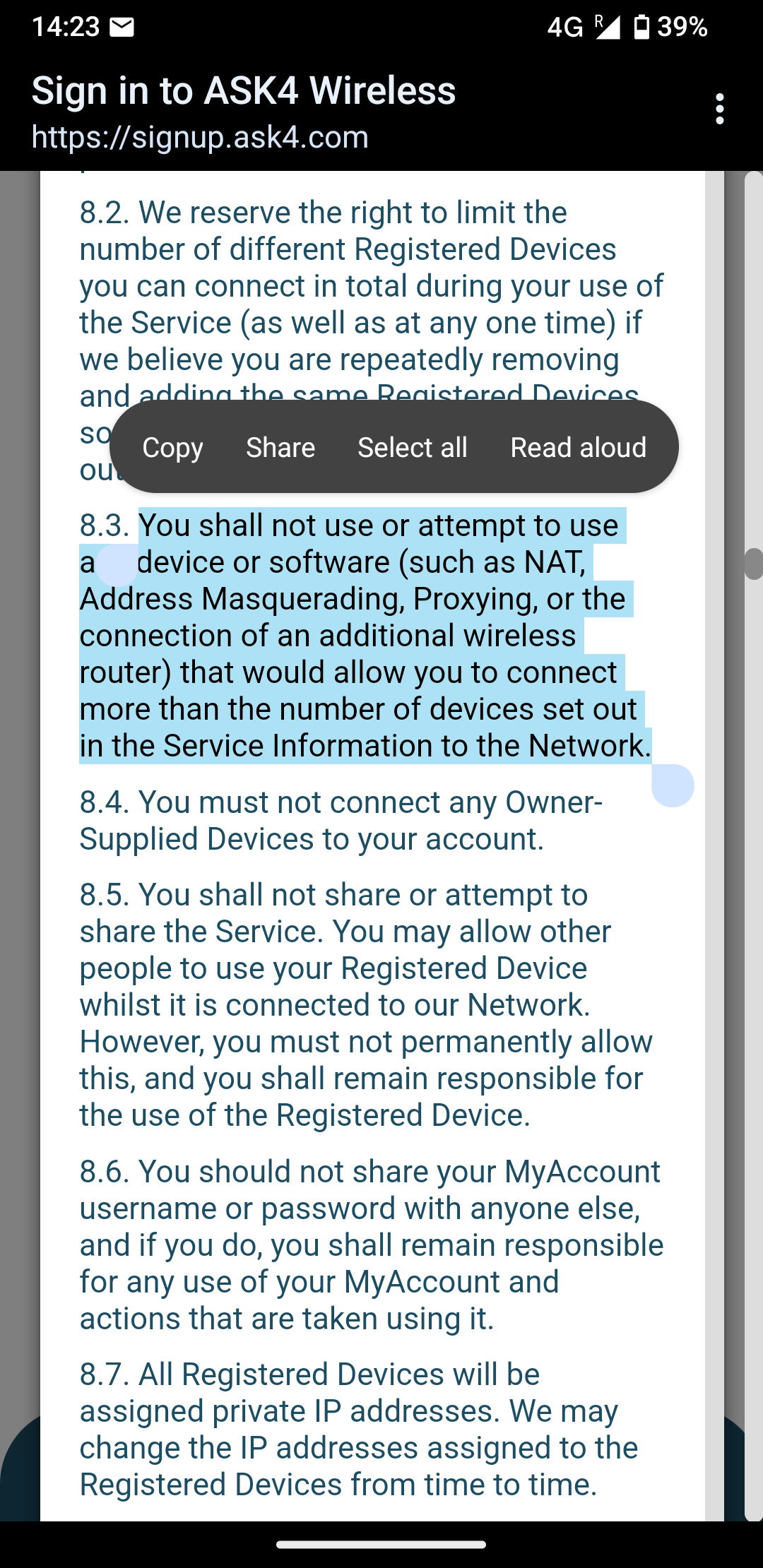this post was submitted on 07 Sep 2024
467 points (92.7% liked)
Technology
70285 readers
3071 users here now
This is a most excellent place for technology news and articles.
Our Rules
- Follow the lemmy.world rules.
- Only tech related news or articles.
- Be excellent to each other!
- Mod approved content bots can post up to 10 articles per day.
- Threads asking for personal tech support may be deleted.
- Politics threads may be removed.
- No memes allowed as posts, OK to post as comments.
- Only approved bots from the list below, this includes using AI responses and summaries. To ask if your bot can be added please contact a mod.
- Check for duplicates before posting, duplicates may be removed
- Accounts 7 days and younger will have their posts automatically removed.
Approved Bots
founded 2 years ago
MODERATORS
you are viewing a single comment's thread
view the rest of the comments
view the rest of the comments

Robust but complex solution:
Set up an encrypted VPN at the router level. Any encryption will work, even weak dumb encryption is fine. Any attempts to decrypt it would be mad illegal.
Turn off your SSID.
It is now functionally impossible to detect anything about the traffic or the Wi-Fi router without some serious or illegal methods.
You should really spend some time learning about WiFi signals. Tracking down rogue Access Points is a pretty common thing and having the SSID turned off does fuck all to prevent it. On the easy end, many enterprise wireless network controllers have rogue AP detection built right in and will show you a map of the location of the rogue AP. Harder, but still entirely possible, is running around with a setup just detecting the signal and triangulating it.
Yeah, I mistyped part of the sentence. Should have been "without some serious effort or illegal methods." Serious effort is well beyond most ISP's. They aren't sniffing wireless AP's then busting down doors to find out if its a 5g AP or an AP using their network. I actually know quite a bit about WiFi signals. I happen to be certified in Meraki (CMSS). If the uni said "no wireless signals" that would be a completely different story.